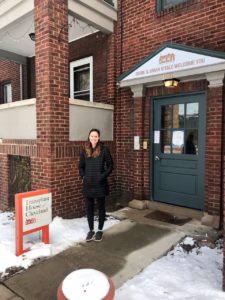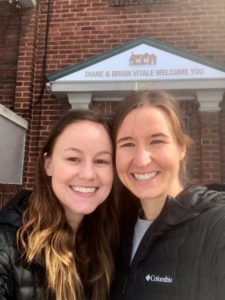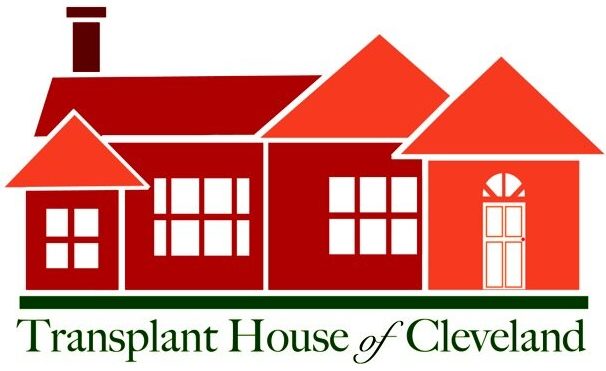
Erika Marx believes in the connectedness of all of us. It’s something she experienced first-hand when constant pain and exhaustion led her down a path to a diagnosis of a rare medical condition – and the decision to give the gift of life to someone she’d never met, while healing herself.
“I didn’t have a doctor guiding me, I had to figure out my own options.”
In 2019, Erika, then 33, started experiencing constant pain in her hip and back. After tests and a surgery, she thought she was on the right track to feeling better. But a few months later, she was still sick and exhausted. Life as a busy nurse and mom to an active 4-year-old became even more challenging. Erika tried changing her diet and adjusting medications to figure out the cause of her symptoms. Still, her condition worsened as her right leg began to swell and she experienced intense, chronic pain in her pelvis. Eventually, she was unable to walk even half a mile or stand for a long period of time.
Erika’s doctor said it was time for another surgery. While on the operating table, she heard him say “Nutcracker Syndrome” several times. She knew this was the worst-case scenario, and as she laid there unable to move, she started to cry. Nutcracker Syndrome is a very rare vein compression disorder in which the left kidney is being crushed by two arteries, like a nutcracker. There is no standard treatment for this condition. Erika describes her pain as a chronic “stabbing” feeling. She had no appetite, and the swelling in her stomach made her look as though she was four months pregnant. Nutcracker Syndrome is so rare that no one on her medical team had encountered it before and each specialist had a different suggestion for treatment. The advice was ultimately that Erika try to manage the pain as best she could. But even with medication, she still couldn’t play with her son and many days she couldn’t even get out of bed.
“I immediately knew: This is what I am supposed to do.”
With determination, Erika took to the internet to research her options and found a Facebook group for those affected by Nutcracker Syndrome. Through this online community, she found hope and possibilities. She also found Dr. Kenneth Chavin at University Hospitals, and the recommendation to stay at Transplant House of Cleveland. Of the two surgical options available to her, Erika chose removal of the impacted kidney and donation of that healthy organ to someone on the national waiting list for a kidney. The moment she learned she could be a living donor, Erika knew there was no other option.
“I had this big decision to make, and I realized I could make it out of hope instead of fear.”
Several people told her that removing a kidney seemed like an extreme decision, but to Erika, accepting chronic pain was more extreme than not trying. “Maybe there is a reason this horrible thing happened to me – my life was turned upside-down, I spent several days a week in bed with excruciating pain…but there is someone else out there who is also struggling and in pain. If there is a way that my suffering could be meaningful and help them, it’s a no-brainer.”
As Erika made her arrangements and arrived in Cleveland, she was welcomed into the supportive community and inviting campus at Transplant House. She was also relieved to talk to hospital staff who had familiarity with her condition. She was the tenth patient of Dr. Chavin’s with Nutcracker Syndrome, and found comfort in his experience and felt at ease with his ability to make her laugh as she embarked on the life-changing surgery. Her path to healing had finally begun.
“I don’t know what I would have done without Transplant House.”
Erika spent almost a month in Cleveland, experiencing a setback that required her to go back into surgery. She found comfort in this home-away-from-home, “I don’t know what I would have done without Transplant House. It was so easy to go back and forth to the hospital, and the apartments are so cozy. I would sit in the recliner and watch Netflix, we binged The Crown. It was nice to have the distraction because I had so much pain after my surgery. I can’t say enough about what a support Transplant House was to me.”

Now back home in Indiana and continuing her recovery, Erika’s goal remains to walk around the block with her son without significant pain. Each day, he asks if she is feeling better, and each day she feels closer to reaching that goal.
“I feel as though there is this invisible string between me and my recipient.”
Erika thinks of her kidney recipient often and hopes to meet them someday. She thinks of the stem cell patients she cared for as a nurse and remembers what they would endure. “I feel like I’ve been given this gift to have this experience of being on the other side and understand what it’s like to be poked and prodded, waiting on results. To have to advocate for yourself. I know this will make me a more compassionate and understanding caregiver.”
When Erika stayed at Transplant House, she would walk through the parking lot and notice all the license plates, making note of the various states. She’d think of how wonderful it was that all of these people from different walks of life found their way to this “shared safe place.”
“I was blown away. This place is a diamond in the rough. The community is amazing.”
